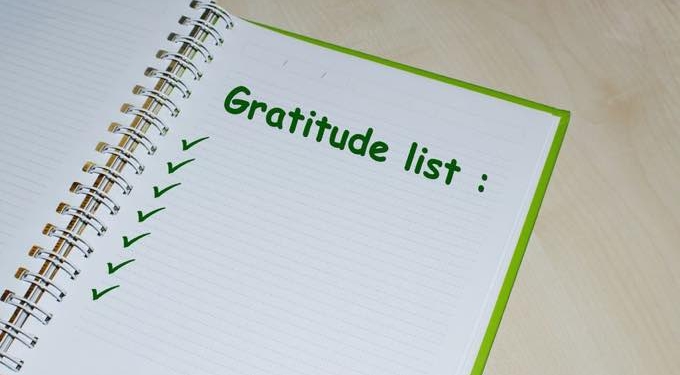
By Karl Staib | Tiny Buddha
“Gratitude unlocks the fullness of life. It turns what we have into enough, and more. It turns denial into acceptance, chaos to order, confusion to clarity. It can turn a meal into a feast, a house into a home, a stranger into a friend.” ~Melody Beattie
A few years ago I had an ulcer and I would get dizzy after almost every meal. There was a point when I was afraid to eat. I lost twenty pounds when I didn’t need to lose weight.
I wasn’t sleeping well.
I was a complete wreck inside.
It took me two and a half years to get my stomach back on track. I tried one thing at a time until I found what worked well for me. I can no longer drink coffee or eat tomatoes or other acidic foods. And man did I did love a good cup of coffee to help get my morning going.
Still, I’m actually grateful for my ulcer. It was one of the best illnesses to ever happen to me because it helped me become a healthier person.
I was only able to overcome it because of my gratitude journal. Each day, I thanked the foods that didn’t cause me to feel dizzy. As I journaled more and more about these foods, I began to see patterns, which helped me ascertain which foods to eliminate.
I put my energy into appreciating the foods that helped me feel good instead of complaining about the foods that made me feel sick to my stomach. And that helped me both heal and keep a positive attitude.
This is why I suggest everyone keeps a gratitude journal. It helps you see things that you missed before. It encourages you to focus your attention on things that are making your life better.
The best part is gratitude not only helps you live longer because it helps reduce stress, it also helps you build stronger relationships because you are more likely to share your appreciation with others. And when you regularly practice gratitude, you’re generally more empathetic and less prone to envy—great for your mental health and your relationships.
The Power of Gratitude Journaling
It took me some time to turn gratitude journaling into a daily habit. When I first started, I would miss days at a time. It took almost a year to get a consistent habit going. Once I made gratitude a regular practice, it helped keep me sane since I was focusing on the things I had in life instead of wanting a situation to be different. This was a huge mindset shift for me.
As I got busier I started getting away from my journal again. Then, as my father was passing, I leaned back into it, but I wanted to go a little deeper. I started writing stories in my gratitude journal, which helped me uncover details I hadn’t really processed before.
I noticed him getting grumpier as he got older. My journal helped me see that I didn’t want myself to fall into the same bad habits. And I didn’t have to. I had a path to build a better attitude.
















